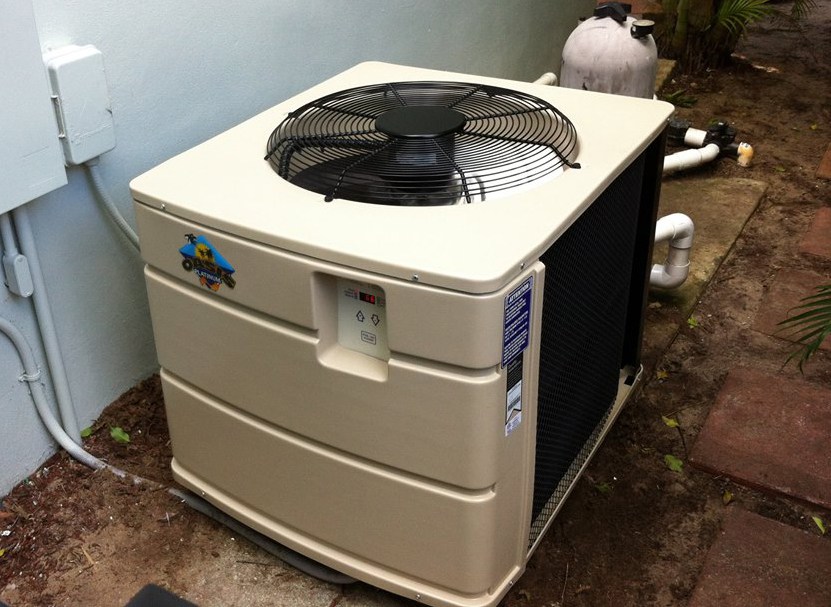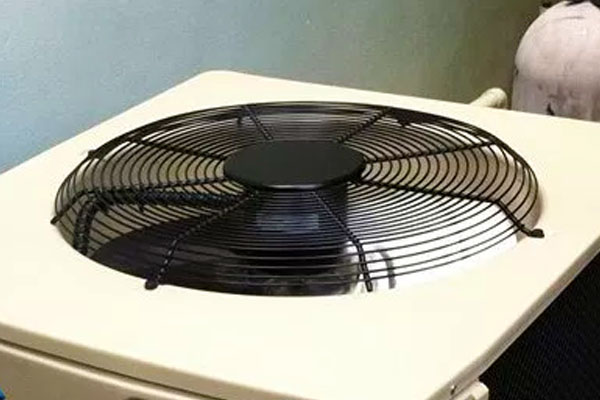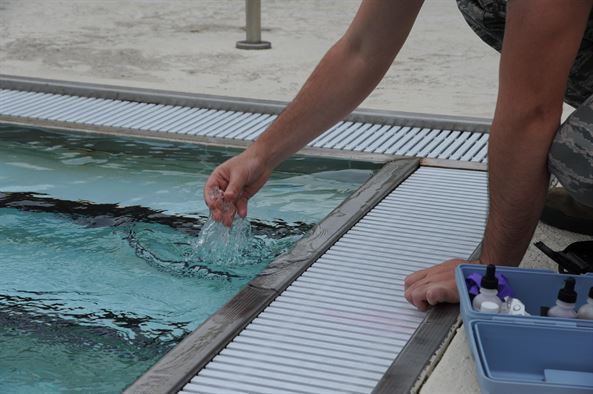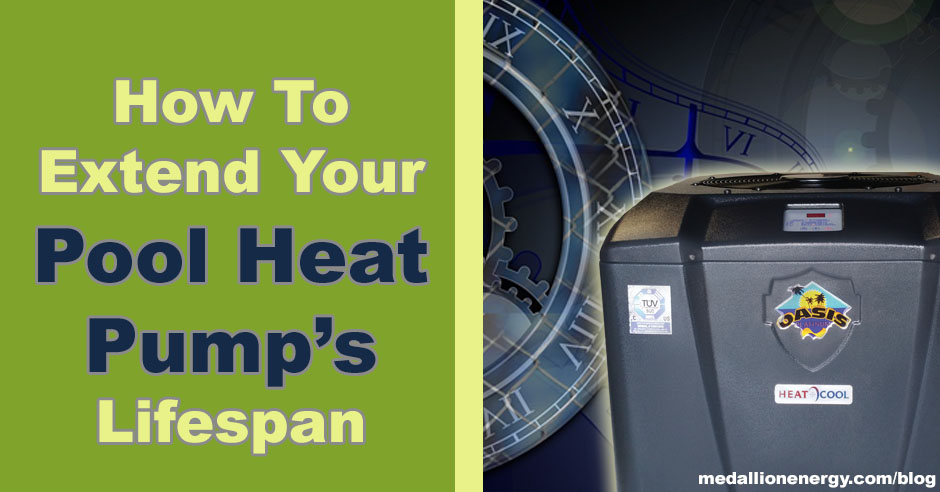While gas, solar, and electric heaters die out after a few years, a pool heat pump can last decades. In fact, you can extend a pool heat pump’s lifespan for as long as you’re willing to put in the effort.
It’s all about good maintenance.
Taking that little bit of extra time to keep the unit in good working order. And taking the necessary action to repair and small problems that pop up along the way. This is how a cost-effective pool owner maintains their heat pump.
Why?
Because the cost of light routine maintenance will ALWAYS be less than the cost of unexpected part replacements. Which is why we’re offering a short list of helpful suggestions that make it easy to extend your pool heat pump’s lifespan. And since a longer lifespan means less money spent, who wouldn’t want that?
So let’s get right into it. Here are 7 ways to extend your pool heat pump’s lifespan.
7 Ways To Extend Your Pool Heat Pump’s Lifespan



Use it often
Have you ever left an old car sitting for a long time? Not once turning it on, or taking it for a quick drive. If so, then you remember the disappointment you felt. And if you haven’t, well, it’s easy to imagine what happens when you go start up a car that hasn’t been maintained.
Maybe the engine sputters a little. But chances are, that old rust bucket isn’t turning on.
Luckily, a pool heat pump is far more resilient, and really only asks that you let it do its job.
That’s right, using your heat pump is one of the best things that you can do for keeping it in good shape. It keeps water flowing through the unit, and all the important parts moving.
So even if you aren’t swimming often, just throw a solar cover on the pool, turn on your automatic timer, and let your heat pump run through the night. It’s the cheapest way to generate heat, and you don’t have to worry about losing it, thanks to the solar cover.
Give it breathing room
Have you ever tried to do a workout in a really small room? Like closet sized?
It gets hot. Really fast.
Which, if you’re trying to sweat is great … until you need oxygen. We can only go so long without getting the airflow we require as humans.
Pool heat pumps aren’t so different. Although their job is specifically to generate heat, airflow is still everything.
A pool heat pump needs enough room to maintain a steady stream of air. So squeezing it into a tight space usually isn’t a good idea.
Tip: Keep the space around your heat pumps cleared out



Keep the vents clear and unclogged
With ample breathing room, a heat pump pulls in air through the vents. This step is integral to the heating process. But if for any reason the vents are clogged or blocked, the heat pump will usually overheat and shut down.
Although once or twice may not be a big deal if corrected, constant overheating can cause major damaged.
Luckily, keeping the vents clear is the simplest solution. And it’s also a great way to maximize your heat pump’s efficiency while preventing unnecessary overheating.
Tip: Clear out the vents on your heat pump regularly to maintain optimal airflow and performance
[Click here for pool heat pump troubleshooting tips]
Use a compressor defender
Every now and then, a brownout or power surge can occur. And when they do, there’s a chance that anything running on electricity could be shorted.
Since a heat pump runs on a dedicated breaker, it’s no exception to this rule. In fact, the dedicated power line may even make it more susceptible.
Now, a heat pump is designed to survive these kinds of incidents, but usually, not damage free. Often, the compressor (an essential part) can take the hit during a power surge.
Luckily, there’s a simple solution: using a pool heat pump surge protector (a Compressor Defender)
They work in the same exact way as the surge protectors in your house. IF a surge strikes, they act as a shield, defending the powered appliances from electrical damage.
Tip: Use a compressor defender to prevent compressor damage



Maintain your chemicals and filter system
When your water gets out of balance or too chemically harsh, it can break down your pool system on a chemical level. And it doesn’t discriminate — chemically imbalanced water wears down on everything from the pool walls and pipes, to your filter and pool heater.
Of course, most pool owners do a good job of avoiding these situations with a regular pool care schedule.
Keeping your filter clean, and your chemicals in balance, not only feels and looks better, it’s better for your pool system. Especially your pool heat pump. The last thing you want to have to do is swap out corroded sensors in the middle of July.
Schedule annual heat pump service
Can pool heaters be repaired?
Yes, but what we’re suggesting is way more cost effective:
If you’re someone who services their car every year and changes their old every 3000 months, then you already understand this concept.
Now, some may argue that it’s “cheaper” to bring in your car only when it absolutely needs service. But most of the time, that’s an unwise choice.
Why? Because chances are, the repairs are way more severe after all that time. And what’s worse is that repairs like those are can easily be avoided with maintenance.
A heat pump is no different. Sure, it may work flawlessly for years when you get it. Not once showing a sign of aging.
But that doesn’t mean that there isn’t a little bit of wear and tear happening in the background. And over time, wear and tear adds up.
With annual heat pump service, every square inch of your heat pump gets cleaned, inspected, and tested for full functionality. And just like a car service, it’s a great way to avoid those potential expensive repairs down the line.



Troubleshoot your heat pump when you suspect a problem
Remember that old saying, “nip it in the bud”? That’s pretty much the idea behind this section.
In an age of DIY, many pool owners opt to perform simpler repairs and servicing themselves.
If you’re one of those people, then being proactive whenever you suspect a problem is a must. Whether it’s a strange sound or some type of malfunction, your best course of action is researching and learning basic pool heat pump troubleshooting. Because the sooner you can fix the problem, the better. Less damage, less stress, more time in the pool.
And with the help of a DIY pool heater troubleshooting service, you’ll have all the guidance you need to get the job done, right over the phone.
But if that’s not really your cup of tea, you can always call a pool heat pump specialist to schedule a repair.
Next steps
If you follow the tips in this post, you can easily extend your pool heat pump’s lifespan by several years. And in the process, you’ll save hundreds, and enjoy soothing warm water from season to season.
From here, we suggest reading:


